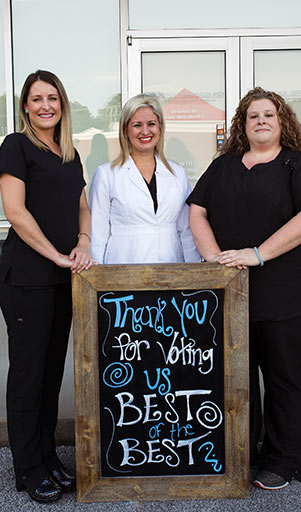High on the list of health concerns for men is low testosterone, or “low T”, because a testosterone deficiency usually translates into decreased sexual performance. However, testosterone actually plays a larger role than sexual performance in a man’s, as well as a woman’s, body. If you are concerned about low testosterone and you live in Chattanooga, or surrounding areas in Tennessee, like Cleveland, take your concerns to the office of Dr. Jack Rowland at Cool Springs MD Chattanooga.
What Is Testosterone?
In addition to sperm, the testes, or testicles, produce testosterone, which controls the proper development of male reproductive organs as well as secondary male sexual characteristics. The pituitary gland and the hypothalamus control the production of testosterone, a hormone that is responsible for:
- Development of the prostate gland and other male reproductive organs
- Male pattern hair growth, including on the chest and abdomen
- Increased strength and lean mass and a decrease in adipose tissue, which
stores tissue in the form of fat - Libido and erections
- Energy levels and mood swings
- Bone density
- Vocal depth
What Causes Testosterone Deficiency?
By the time a man reaches his 30s, the aging process is gradually decreasing testosterone levels. Although much controversy surrounds the exact aging process, scientists, researchers, and physicians do agree that aging is not the only factor that is responsible for decreased testosterone. Testosterone levels may drop due to:
- Testicular infection or injury
- Damage from cancer treatments
- Genetic issues such as an additional x chromosome, known as Klinefelter’s
syndrome - Excessive iron levels
- Disorders of the pituitary gland
- Anabolic steroid use
- Medications such as antidepressants and corticosteroids
- Excessive soy consumption, leading to high estrogen levels
- Cirrhosis
- Kidney disease and failure
- HIV and AIDS
- Uncontrolled stress
- Congenital diseases
- Chronic inflammatory conditions
What Are The Symptoms of Testosterone Deficiency?
Testosterone deficiency may be indicated by many symptoms, such as:
- Anxiety and depression
- Physical weakness and low energy
- Lack of motivation
- Poor memory and concentration
- Low libido and erectile dysfunction
- Irritability
What Are The Changes That Occur In The Body With Testosterone Deficiency?
Low testosterone can cause negative physiological changes, including:
- Increased adipose (fat) tissue and decreased lean mass
- High cholesterol and triglycerides
- Low hemoglobin and potential anemia
- Loss of bone density leading to osteoporosis
What Is Testosterone Replacement Therapy?
Testosterone replacement therapy, also called androgen replacement therapy, corrects hypogonadism, which means that a man’s body is unable to produce sufficient quantities of testosterone. This condition is generally caused by underproduction in the testicles.
What Are The Benefits of Testosterone Replacement Therapy?
The benefits of testosterone replacement therapy vary with symptoms and many other factors, which may include:
- Increased energy levels and motivation
- Lower irritability levels and fewer mood swings
- Less depression and anxiety
- Increased libido
- Improved frequency and quality of erections
- Increased lean mass and strength
- Increased memory and cognitive function
- Improved skin thickness and health
- Improved sleep
- Decreased joint pain
How Do I Find Out If I Have A Testosterone Deficiency?
If you suspect that you might have a testosterone deficiency, schedule a discreet phone consultation with Dr. Jack Rowland, who will take a blood sample to analyze your testosterone levels.
Low testosterone affects many physical and emotional issues, but it may also be caused by a wide range of medical conditions. If you live in Chattanooga, or within the surrounding areas of Tennessee, including the Cleveland community, and are experiencing any of the symptoms associated with low testosterone, contact our office at 423-401-8034 to schedule a private consultation with Dr. Jack Rowland.











